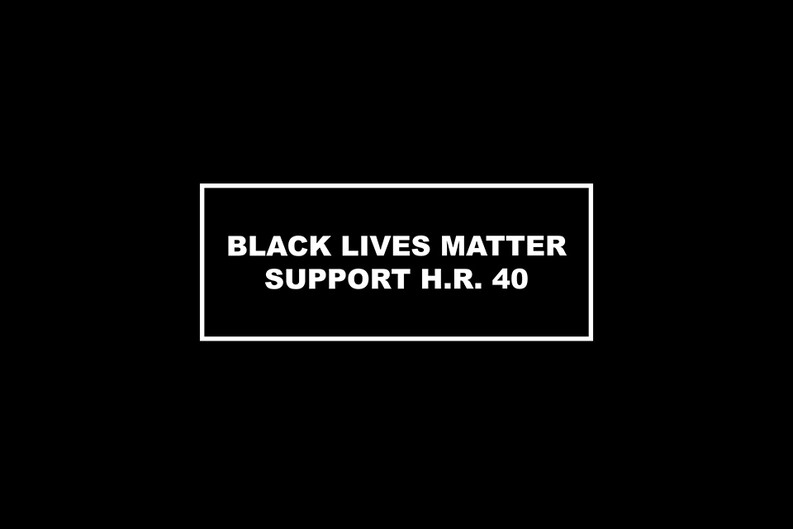Lowenstein Clinic Joins Groups Urging Congress to Establish Commission on Legacy of Slavery

The Allard K. Lowenstein International Human Rights Clinic was one of more than 100 organizations signing an open letter, released July 31, 2020, calling on the U.S. Congress to pass House Resolution (HR) 40. The bill, first introduced 30 years ago, “would establish a commission to investigate the legacy of slavery and its ongoing harms as well as come up with proposals to Congress for redress and repair.”
The letter draws on and updates Rev. Dr. Martin Luther King Jr.’s text “Why We Can’t Wait,” written in 1963, to urge the United States to address structural racism in this moment of “national reckoning” brought on by protests across the country. In support of the call to pass HR 40, it briefly describes a number of contemporary racial injustices that warrant urgent action by the United States government.
“HR 40 can’t wait, when” the letter says, Black infant mortality rates are worse than the rates during slavery; the massive Black and white wealth gap has not improved since 1968; Black children are disproportionately criminalized and punished in schools; Black and brown school districts receive billions of dollars less in funding than predominantly white districts; segregation and discrimination cause enormous disparities in health and housing; and police kill Black men and boys at disproportionate rates, often with impunity.
The letter calls HR 40 “a first and reasonable step — it is a commitment to truth-telling, studying and coming up with ideas” — for moving “the United States out of this deep quagmire of inequality and to finally make it whole.”
The “Why We Can’t Wait” campaign for HR 40 was initiated by groups including the National African American Reparations Commission (NAARC), Human Rights Watch, the American Civil Liberties Union (ACLU), and the National Coalition of Blacks for Reparations in America (N'COBRA). The letter emphasized that the “multi-racial, cross-generational protests” happening across the United States demonstrate widespread support for measures to repair the harms of racism.
“The renewed effort to legislate a process of accountability for the nation’s record of slavery and racist discrimination and repression is a modest, thoughtful and needed beginning to addressing the human rights failure at the core of our national life,” said Binger Clinical Professor of Human Rights Jim Silk ’89, Director of the Lowenstein Clinic. “The Lowenstein Clinic wanted to support this urgent call for official reparative action for the centuries of systemic racism against Black people in the United States.”
You can read the letter to Congress and the full list of signatories here.


